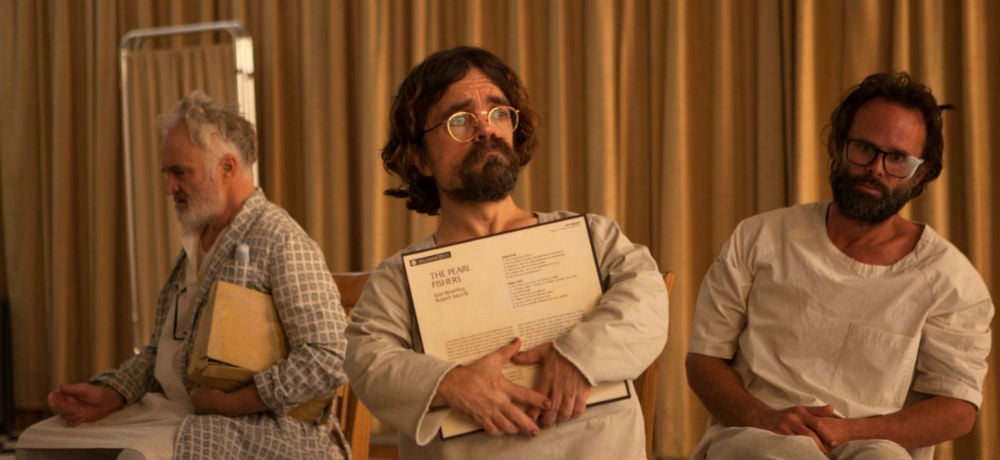






According to Healthline, a delusion of grandeur is “a person’s belief that they are someone other than who they are, such as a supernatural figure or a celebrity. A delusion of grandeur may also be a belief that they have special abilities, possessions, or powers.” There are different types of delusions, including religious, where one can believe that they are a religious figure. From the director of Fried Green Tomatoes comes a story that discusses such a false belief.
Delusions of grandeur have been explored in films before. The most recent film that comes to mind is Glass, where Sarah Paulson’s psychiatrist specializes in such delusions and tries to convince her patients that they only believe they are superhuman and hold no powers. But unlike Glass, Jon Avnet’s latest film, Three Christs, is a spiritual tale of God versus nature and God versus science, as a doctor with no religious beliefs much treat patients who say they are Jesus Christ.
Three Christs, set in 1959, follows the true story of psychiatrist Dr. Alan Stone (Richard Gere) and his work at Michigan’s Ypsilanti State Hospital. Stone was a pioneer of sorts, as he wasn’t afraid to call out the inhumane treatment that patients were subjected to. He compared institutions for the mentally ill to “a warehouse run like an automotive factory.” Refusing to subject patients to electroshock therapy, he instead placed them in a room together to treat them through the simple act of conversation and interaction. The patients in question are all diagnosed paranoid schizophrenics and are known as the “three Christs” after their delusional state of identity. These are men who have all formed their new identity through deep trauma in their past. Joseph (Peter Dinklage) suffered a childhood of abuse at the hands of his father. Similarly, Leon (Walton Goggins) also suffered abuse at the hands of a parent, however, it’s his religious fanatic mother who’s the source of his trama. And finally, there’s Clyde (Bradley Whitford) who carries the guilt and trauma of watching his wife die as a result of an abortion. But like his patients, Stone also has hidden scars, as well as his assistant, Becky (Charlotte Hope).
Three Christs is a film all about (re)discovering one’s identity. A film that explores how difficult it is to come to terms with trauma, the process of making peace with it, and ultimately, oneself. This is explored through a darkly comedic, and intensely dramatic narrative that relies heavily on the performance of its actors. When you put all four of the main male cast members in a room together, you realize why they are considered some of the greatest working actors. It’s unfiltered chaos as the Christs interact with one another, forming a challenging dynamic that’s purely a battle of wills. But the best part of the film is the slow development of their bond with each other, as well as with Stone. These depictions can border on the offense, especially through the film’s dialogue, and as a result, there’s a worry that arises, as there is with any films like this, where you wonder about the accuracy of the illness being depicted. Whether or not this is an accurate depiction of paranoid schizophrenia, there’s no denying how real the characters feel, which compliments a very real illness.
While it’s pure entertainment watching these actors go head to head for two hours, it starts to feel like a slog after a while. The writing of the film’s female characters feels incomplete, as well. As Dr. Stone’s wife, Julianna Margulies is left as a device to create purely cinematic conflict with no purpose; that classic belief that one’s husband is sleeping with their assistant kind of conflict. Likewise, the assistant in question, Becky, is solely used as an object of sexual fantasy, which is unfortunate because Hope shows a lot of promise in her first major on-screen role.
It’s hard not to compare Three Christs to other iconic “mental hospital” narratives of the past like Girl, Interrupted, a film that deals with mental health in so many facets. While the film doesn’t try anything new technically like Unsane and isn’t as intense or heartbreaking as Penny Dreadful, it still succeeds in presenting a fascinating exploration of the mysteries of the human mind.
Movie Score: 2.5/5